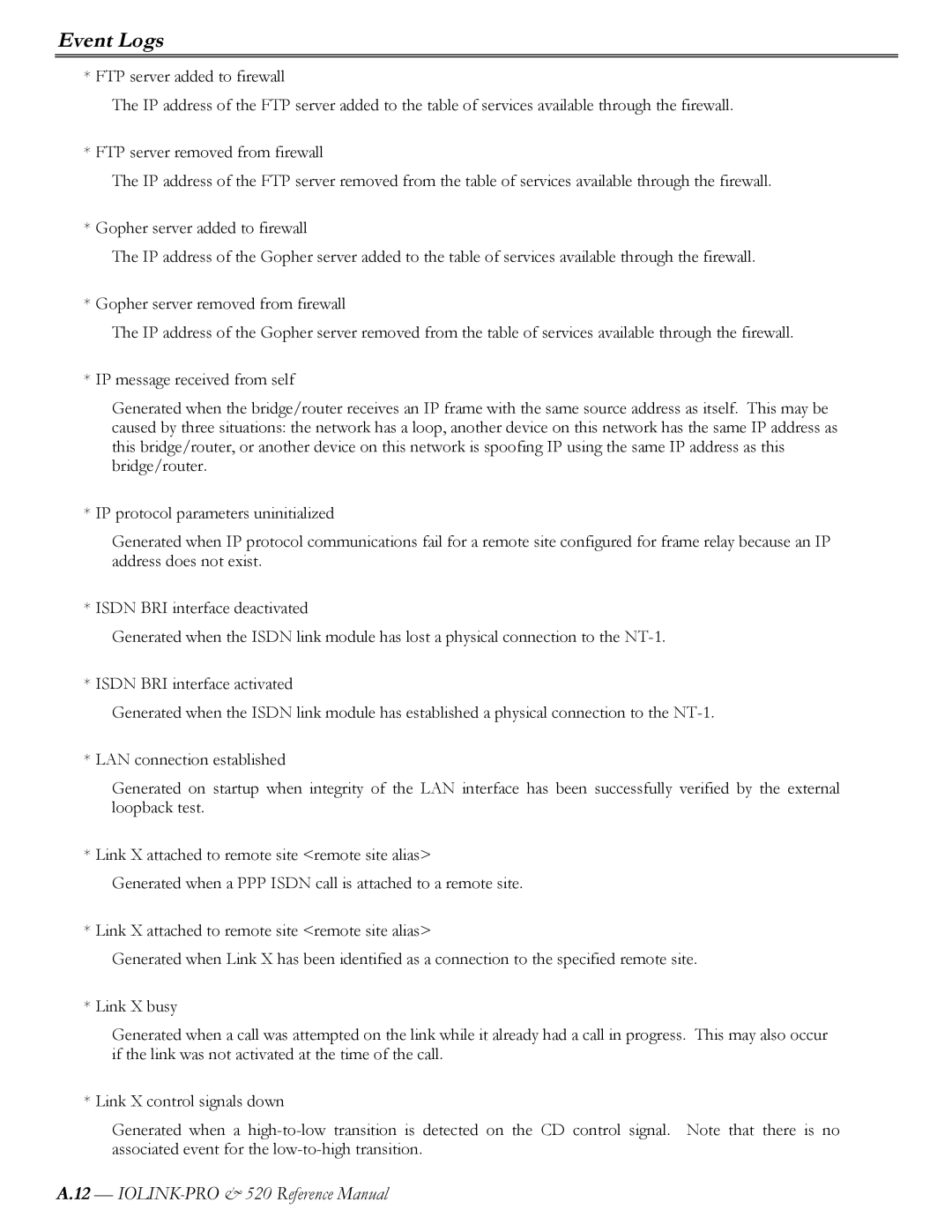Event Logs
* FTP server added to firewall
The IP address of the FTP server added to the table of services available through the firewall.
* FTP server removed from firewall
The IP address of the FTP server removed from the table of services available through the firewall.
* Gopher server added to firewall
The IP address of the Gopher server added to the table of services available through the firewall.
* Gopher server removed from firewall
The IP address of the Gopher server removed from the table of services available through the firewall.
* IP message received from self
Generated when the bridge/router receives an IP frame with the same source address as itself. This may be caused by three situations: the network has a loop, another device on this network has the same IP address as this bridge/router, or another device on this network is spoofing IP using the same IP address as this bridge/router.
* IP protocol parameters uninitialized
Generated when IP protocol communications fail for a remote site configured for frame relay because an IP address does not exist.
* ISDN BRI interface deactivated
Generated when the ISDN link module has lost a physical connection to the
* ISDN BRI interface activated
Generated when the ISDN link module has established a physical connection to the
* LAN connection established
Generated on startup when integrity of the LAN interface has been successfully verified by the external loopback test.
* Link X attached to remote site <remote site alias> Generated when a PPP ISDN call is attached to a remote site.
* Link X attached to remote site <remote site alias>
Generated when Link X has been identified as a connection to the specified remote site.
* Link X busy
Generated when a call was attempted on the link while it already had a call in progress. This may also occur if the link was not activated at the time of the call.
* Link X control signals down
Generated when a
A.12 —
